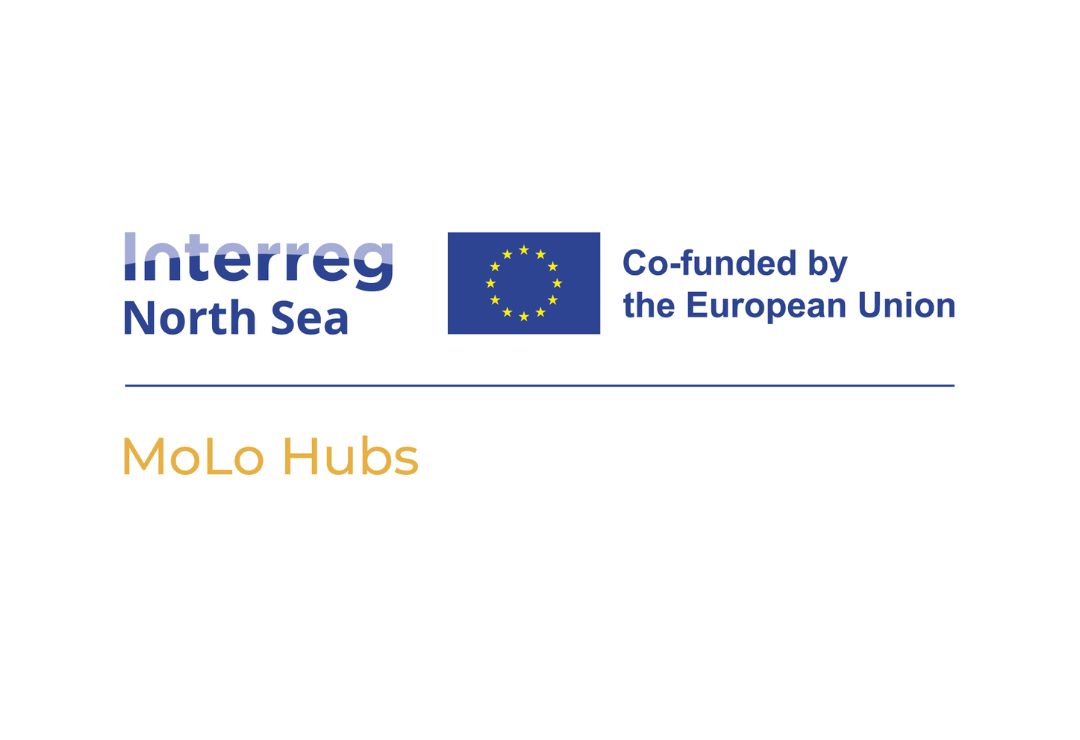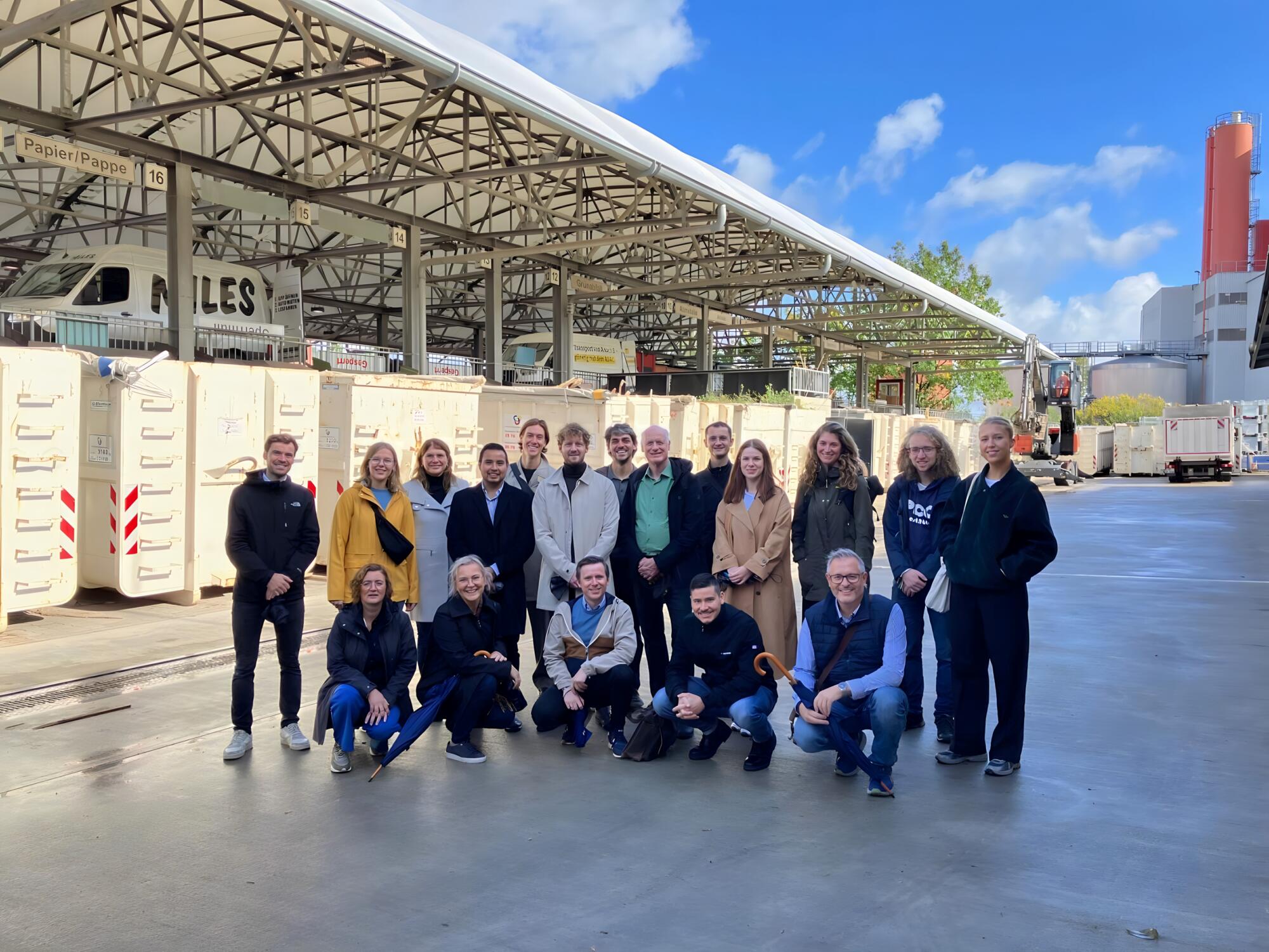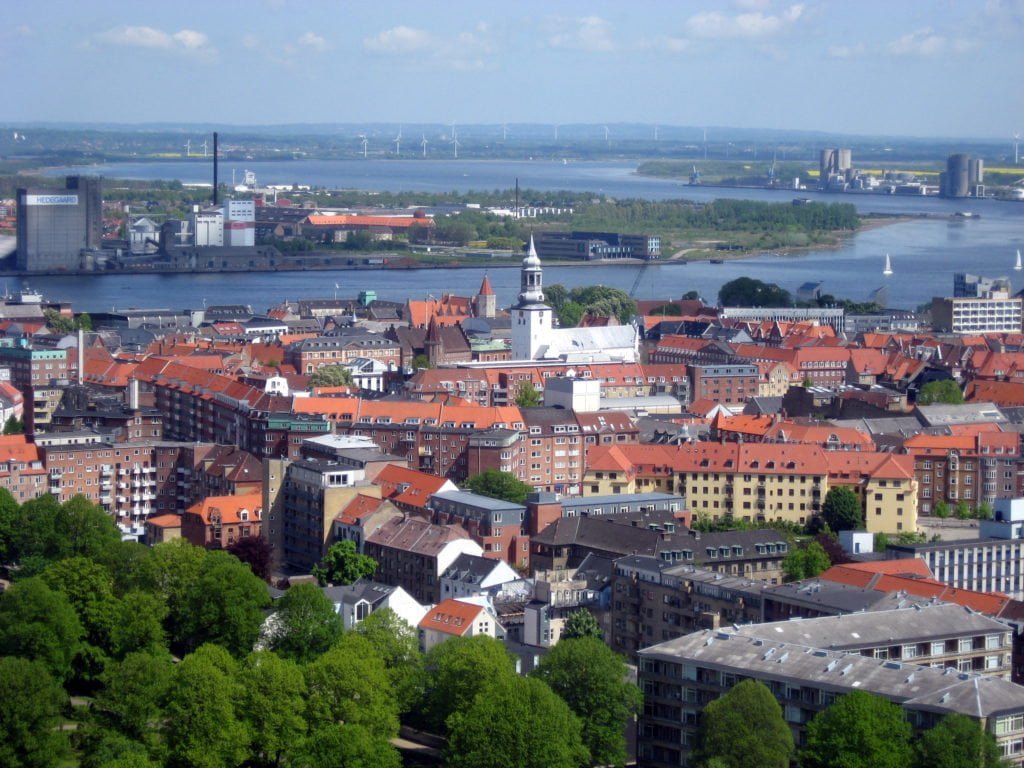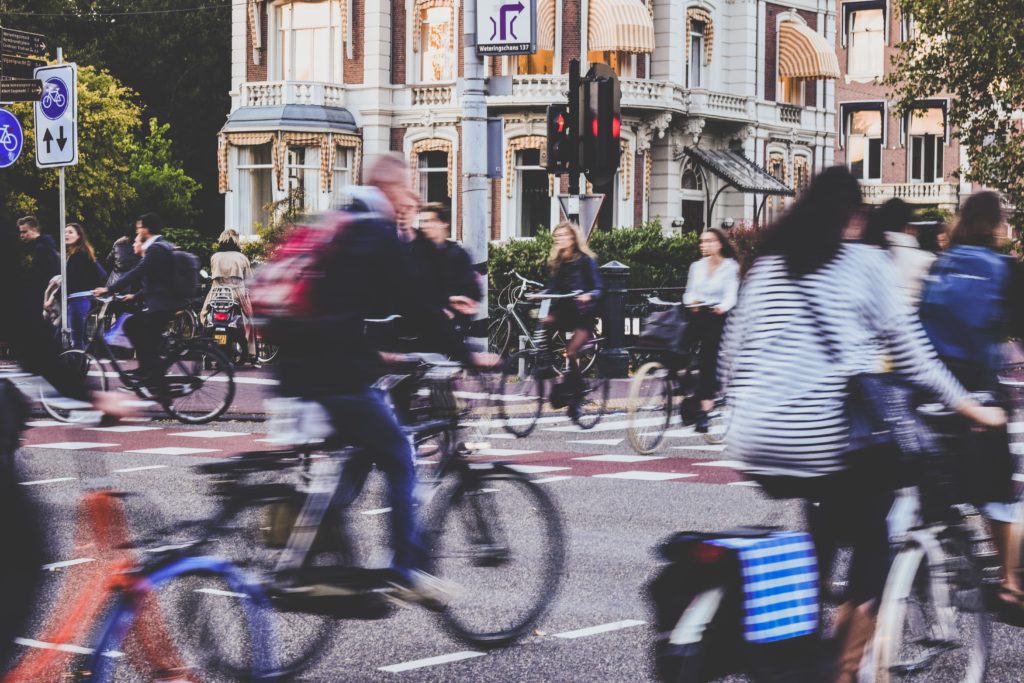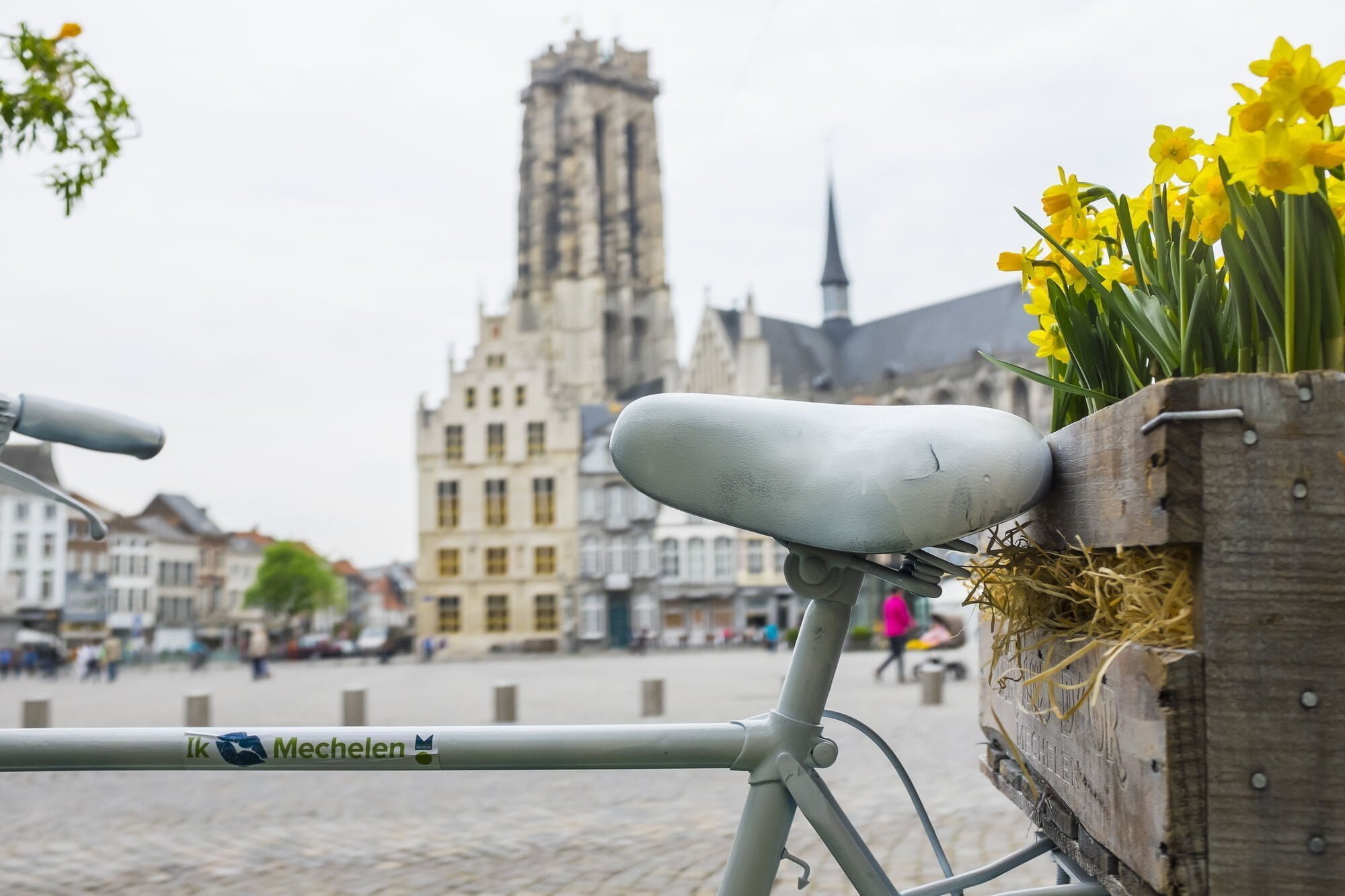MoLo Hubs
How can we reduce traffic in urban mobility hubs? This is the question guiding the new Interreg North Sea Region project MoLo Hubs. By initiating and prototypically implementing new and convenient logistics service offers in five pilot cities, MoLo Hubs aims to reduce urban traffic, increase the attractiveness and functionality of mobility hubs, and lend useful insights to improve the user-centred design of logistics services across Europe.
The demand for urban mobility services is growing rapidly as more and more of Europe's population becomes concentrated in cities. The pressure to deliver convenient, well-organised mobility and logistics systems for citizen and commercial use is expanding at the same speed, and is unlikely to level off in the years to come. At the same time, urban mobility hubs will be an accent point for efforts to drastically reduce greenhouse gas emissions before 2050. The confluence of these factors means that city logistics processes and services will need to be re-thought.
That's where MoLo Hubs comes in.
A newcomer to the POLIS portfolio, MoLo Hubs began in October 2023 and will run until December 2026. In just over three years, the project's leaders aim to tackle key urban logistics objectives, namely:
1. Developing and implementing user centric logistics services and solutions at urban mobility hubs to reduce urban traffic;
2. Increasing attractiveness of mobility hubs;
3. Making use of up-to-date digital technologies;
4. Implementing smart and digital solutions;
5. Fostering digital skills.
POLIS' role: Striving for impact
For its part, POLIS is leading the work package on Smart Policy & Legacy, which aims to leave a lasting impact on Europe's urban logistics landscape by coordinating the implementation of pilot projects in five cities, fostering supportive policy changes, and inspiring non-partner cities and regions in Europe to follow in the tracks of pilot partners.

The MoLo Hubs team at a public waste collection site in Hamburg.
Currently, the project consortium consists of 13 partners from 5 different countries (Belgium, Denmark, Germany, Netherlands and Sweden) and brings together the expertise of scientists, public authorities, and economic actors.
The project partners include:
- Five host partners (pilot cities):
- Four knowledge partners:
- HiiCCE (DE)
- Amsterdam University of Applied Sciences (NL)
- Universiteit Antwerpen (BE)
- Transition (NO)
- Two network partners:
- Logistics Initiative Hamburg (DE)
- POLIS network (BE)
- And two implementation partners:
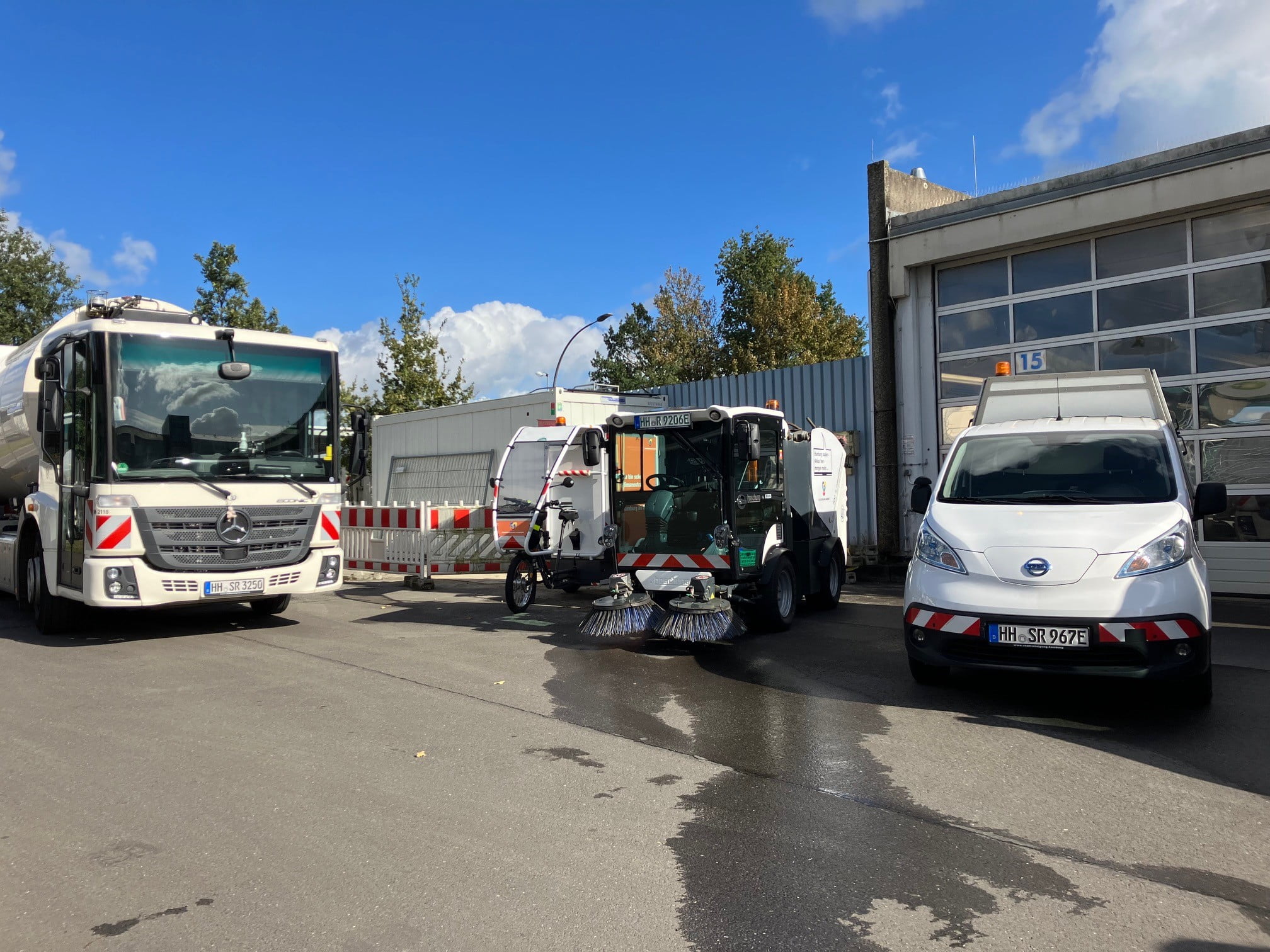
Headquarters of the Stadtreinigung Hamburg Anstalt des öffentlichen Rechts.
In the five pilot cities listed, MoLo Hubs will not only lead the shift to green and active modes of transport, but also introduce new and innovative logistics services for all stages of a typical product life cycle (distribution, repair, and disposal), thereby creating new urban value chains. Thanks to the integration of logistics services into urban mobility hubs, these hubs will become more attractive to users, hopefully leading to a decrease in traffic congestion induced by typical logistics operations, reductions in GHG emissions, and optimised accessibility of public space. Not coincidentally, these are some of the major territorial challenges for cities and regions in the North Sea Region.
Within the MoLo Hubs project, POLIS strives to see interventions through from the design to the implementation phase, thus ensuring lasting change in each of the designated pilot cities. At the same time, it will buffer these initiatives through support for policy changes and the uptake of sustainable urban logistics practices.
Want to keep up with the latest news? Visit the project's website and follow them on LinkedIn.
